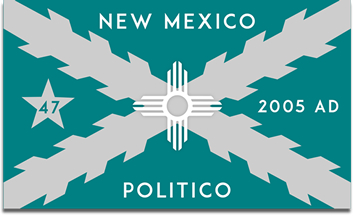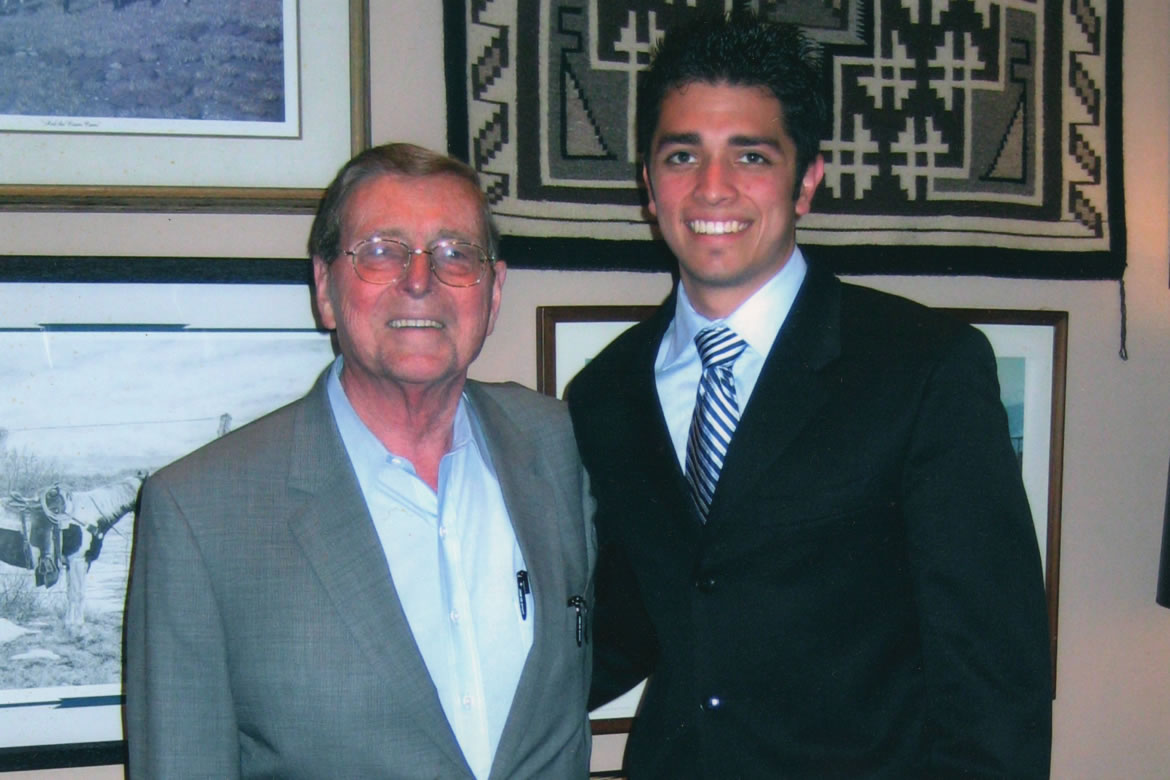It was the summer of 2007. I had arrived in Washington, D.C. a few days before the start of a summer internship with Senator Domenici and I had finished moving into a dorm at American University – my residence for the next few months.
On my first day of the internship I made my commute via the Red Line on the DC Metro, getting off at Union Station and walking the rest of the way to the Hart Senate Office Building. It all felt surreal. I remember the initial intern meeting with Chief of Staff Steve Bell, reminding us that D.C. could be a dangerous place (always stay in the NW quadrant) and that we should be careful what we post on social media – advice that is still relevant but at the time was a rather new concept (keep in mind my Facebook profile was barely six months old at the time).
As a New Mexican I was familiar with the name Domenici but it was not until I worked in his office that I fully understood why he was as respected and admired as he was back home and on Capitol Hill.
In Congress seniority is everything. At the time Senator Domenici was the fifth highest ranking senator overall and the second highest on the Republican side. That kind of seniority brings money and power, and Senator Domenici wielded that influence to bring billions of federal dollars back home. But his seniority alone did not fully explain his staying power. His ability to reach across the aisle, his credibility and depth of knowledge on budget issues, and his exemplification of what it means to be a public servant is what made him legendary in D.C. and in New Mexico.
The late Senator Ted Kennedy said of Domenici, “there’s no one in the Senate, or in the House of Representatives, that can make the case like Pete Domenici can, and make it as convincingly and as powerfully as he does. And whenever he does, the U.S. Senate just responds overwhelmingly.”
My friend and mentor, J. Paul Taylor, former Democratic state representative from Doña Ana, said that Domenici “was a wonderful senator and did a great deal for New Mexico and the nation. He’s going to be greatly missed.”
Unfortunately that kind of bipartisanship seems to be from a bygone era. Much has been written about how Americans are withdrawing to their own bubbles where they are fed isolated information that caters to their social and political inclinations. Russ Roberts writes that “we manage to convince ourselves that the evidence speaks so loudly, so emphatically, that we have no choice but to declare our allegiance to a particular tribe as a result of that evidence…It rarely crosses our minds to notice that causation is probably going the opposite direction — the tribe we are in determines the evidence we notice and accept.”
So is it still possible for our elected officials to forge a reputation that can build on Domenici’s bipartisan legacy in a hyper-partisan political environment? I believe it is, though clearly it is much more difficult to do so. GOP leaders like Nevada Governor Brian Sandoval, Arizona Senator Jeff Flake, and Ohio Governor John Kasich are examples of Republicans attempting – and largely succeeding – to pick up the bipartisan baton that Senator Domenici carried for thirty six years in D.C.
There are a couple of reoccurring themes in the reactions to Senator Domenici’s passing. His bipartisanship was recognized, but even more important was that his unquestionable dedication to public service was what made people cherish him. It is essential to point out that his devotion to serving others gave him the credibility to work across the aisle; he was a trusted partner because politicians recognized that he was not motivated by grandeur or political posturing but improving the lives of the people of New Mexico. That is what made him an effective leader.
The responses from public officials in New Mexico and across the country highlighting Domenici’s bipartisanship and compassion was a refreshing moment in a political environment where it seems scoring political points is more important than accomplishment. I hope they remember those sentiments when they are called to make hard decisions for the sake of helping the people that elected them.
But the mantle of responsibility does not only fall on our leaders. The responsibility to improve our world falls on all of us. Albert Einstein once said, “What is right is not always popular and what is popular is not always right.” Be a part of the solution by breaking out of the echo chambers of blind partisanship perpetuating ignorance and division.
Senator Domenici earned his legacy by putting all New Mexicans before himself, even bucking his own party when he believed they were not serving the best interests of the people. I am forever grateful for the privilege and opportunity to briefly work for him, and I hope current and future leaders in New Mexico learn and appreciate what made him such an effective legislator.

